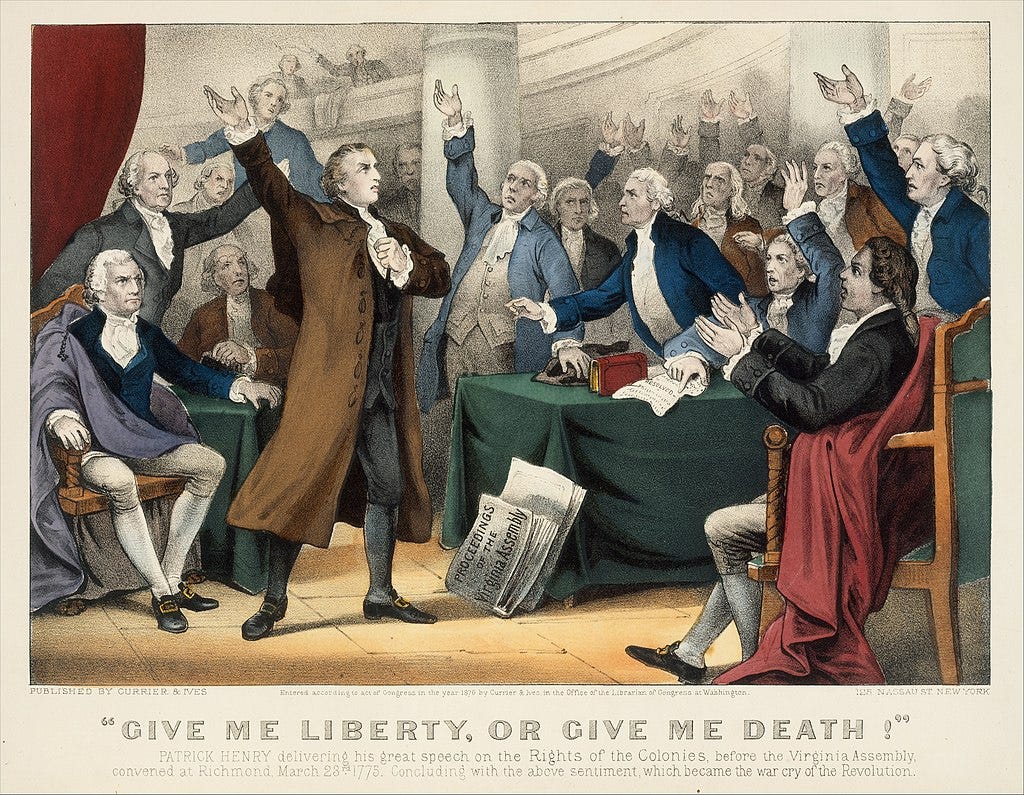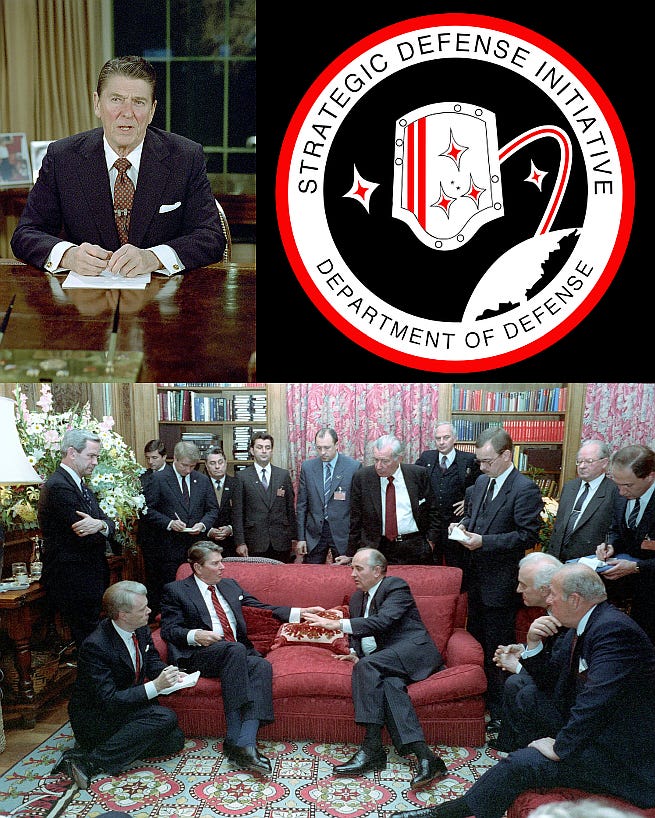1775 — Patrick Henry Places Freedom Above Life Itself
public domain image from wikimedia commons
Patrick Henry uttered his most-quoted saying on this date in 1775: “I know not what course others may take, but as for me, give me liberty or give me death!” After the Declaration was signed on July 4th of the next year, Henry was appointed Governor of Virginia.
Questions: What profession did Henry follow? Which writings of his were both popular and incendiary? Why is Henry not more well-known than he is today? Is his memory being somewhat for some reason? If so, what is the reason?
1839 — O.K. Becomes Okay to Say
public domain image from wikimedia commons
Is it Okay to say “Okay”? It was at one time considered slang, and thus unacceptable to the more hoity-toity, buttoned down crowd. For them, this day in 1839 was anathema, for the initials “O.K.” were used in print for the first time, in The Boston Morning Post. It was the abbreviated form of “all correct” but funnily (so some people thought) as “oll korrect.” So had the “correct” (no pun intended) spelling been abbreviated, we might be saying “A.C.” now instead of “O.K.”
“O.K.” wasn’t the only abbreviation of this sort in use in the late 1830s. The “in crowd” or hipsters of the day used many intentionally misspelled bits of speech as initials that would confuse those who were not “in the know,” such as “O.W.” for “oll wright” (all right). “O.K.” or, as we spell it now, “Okay” is the one that stuck. Its usage is still about the same, though, because we are basically seeing “all [is] correct” when we say, “Okay.” Okay?
Questions: Would it be Okay to say that Okay is pretty much a universal word, understood by almost everyone everywhere? If you didn’t say “Okay” what would you say instead in the same circumstance?
1919 — Mussolini Does a 180
public domain images from wikimedia commons
As was Hitler, Italy’s Mussolini was a solider in World War 1. Also like Hitler, his followers called him “The Leader” (“Il Duce” in Italian, “Der Führer” in German). The two homicidal maniacs were also united in their support for Francisco Franco in Spain during the Civil War in that country.
Unlike Hitler, Mussolini was a socialist before switching to fascism. That was his first “180”; the second is shown above (but the two 180s did not add up to a 360 — there was no return to perpendicular; apparently the first 180 was horizontal, the second vertical).
The two failed leaders were also practically in lockstep in death: Mussolini was shot by others (firing squad) on April 29, along with his mistress. Hitler was shot by himself the day after that; his newlywed wife (and long-time paramour) Eva (née Braun) Hitler died from taking cyanide at the same time.
Questions: Why does the following quote from Lonesome Death (spoken by Robert Duvall’s character Gus McCrae) come to mind in connection with Mussolini and Hitler: “If all you can talk is guff, you can talk it to the Devil”?
1983 — Reagan’s “Star Wars” Sleight of Hand
public domain images from wikimedia commons
Ronald “Ray-Gun” Reagan pulled a fast one on Russia with his “Star Wars” rhetoric.
On this day in 1983, President Reagan announced a program to develop anti-missile weaponry that would make the United States immune, or impervious, to a nuclear attack. This capability was to be provided by satellites shooting laser beams at incoming missiles, knocking them out of the sky and off-target. Officially, the program was called SDI (Strategic Defense Initiative), but it was colloquially known as “Star Wars.”
Naysayers pointed out that even if the plan was 95% successful, it would be to no avail, as the 5% of nuclear missiles that got through the defensive shield would be enough to effectively wipe out, not just the United States, but the whole planet.
But Reagan and his team were, for all practical purposes, bluffing anyway. The “Star Wars” system was never realized, and after spending gazillions of dollars, it was quietly shelved.
Questions: If SDI was a waste of time and money, why did America pursue it? If enough missiles would get through even a mostly-successful defensive array of laser-shooting satellites, why were the Russians so concerned about it? Who blinked?
Read about “The Secret Lives of Kids” here.











